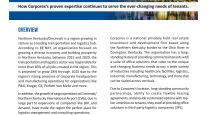FMCSA Sets 2010 UCR Fees at Nearly Twice 2009 Levels
This story appears in the May 3 print edition of Transport Topics.
The Federal Motor Carrier Safety Administration last week announced that fees for the Unified Carrier Registration program would nearly double, and officials familiar with the program said the fees soon may need to rise even higher to satisfy states’ need for revenue.
FMCSA published the fee levels for 2010 in an April 27 Federal Register notice. States said they intend to begin attempting to collect immediately.
“The agency found that the proposed fees were based on a reasonable estimate of the number of active motor carriers subject to the UCR fees,” FMCSA stated.
Under the new fee structure, the smallest fleets, along with leasing companies, brokers and forwarders, will pay $76, an increase of 95% over the $39 collected in 2009. The largest fleets, those with more than 1,001 trucks, will be forced to pay $73,346, a 96% increase over the $37,500 those carriers previously were required to pay.
FMCSA’s notice said the new fee levels also addressed changes in how fleet size was calculated and “set reasonable targets for compliance by the motor carrier industry to encourage enhanced enforcement efforts by the participating states.”
Similar increases were implemented in all six of the UCR categories, although the fee levels are slightly lower than what FMCSA proposed last year (9-7, p. 1).
Bob Pitcher, vice president of state laws for American Trucking Associations and vice chairman of the board that oversees the UCR program, told Transport Topics that the final fees “appear to have been reduced about 10% to 12% from what was initially proposed, and that certainly is good.”
However, despite the modest reduction from FMCSA’s earlier proposal, Pitcher said the fees still were unacceptably high.
“The fees are too high and they don’t reflect either the economic times or the fact that the states haven’t been enforcing the fees,” he said.
In its notice, the agency dismissed the economic argument made by ATA and other industry groups, saying that the 2005 law that created UCR to replace the Single-State Registration System “does not permit FMCSA to consider as relevant . . . any factor that frustrates the primary purpose of providing sufficient revenue for the participating states. Current economic conditions are one such factor.”
William Leonard, director of the motor carrier compliance bureau for the New York State Department of Transportation, told TT that even with the increase over 2009’s fees, he was “a bit concerned” that states would not be able to collect the roughly $112 million required by federal law and envisioned by the new fee program.
The final fees are “about 8% less than the UCR board recommended,” Leonard said. He added that the only way the UCR board can reach the $112 million target is to “register a ton of additional carriers that we’ve never registered before, so it is going to be a real struggle, I think.”
In the rule, FMCSA said that while “a compliance rate of 100% is not feasible,” it based the fees assuming a compliance rate of 86.42%, which would be a marked improvement over states’ past performance in registering carriers.
“They are anticipating us registering about 375,000 carriers,” Leonard said, adding that “2009 has been our best year by far and we’ve registered 330,000 and so we’re going to have to do significantly better in order for us to get to the promised land.”
Leonard said April 27 that New York would begin sending bills to carriers in the state within a few days and that all states “were hoping to have all the mailings out throughout the nation by May 15.”
Stephen Keppler, interim executive director of the Commercial Vehicle Safety Alliance, which represents the state agencies that collect fees and use the revenue for enforcement activities, said he wasn’t sure the new fees were sufficient.
“I don’t think that that fee structure is going to get to the level that’s required to make the states whole,” he said, adding that if states continue to fall short, “it might require an increase.”
If the states fall short of the revenue targets, Leonard said the board may seek another increase for 2011, though given the delays in issuing 2010 fees, he “would probably vote for keeping the fees the same.”
Pitcher said he expects future fee increases, unless there are changes to the program or a stepping up of state collections.
“There’s no real incentive for state enforcement, so I think we are going to see a spiraling of the fees if the program is not substantially altered or eliminated,” he said. “I think, with this rule, the states have learned that they can get pretty much what they ask for out of FMCSA.”


